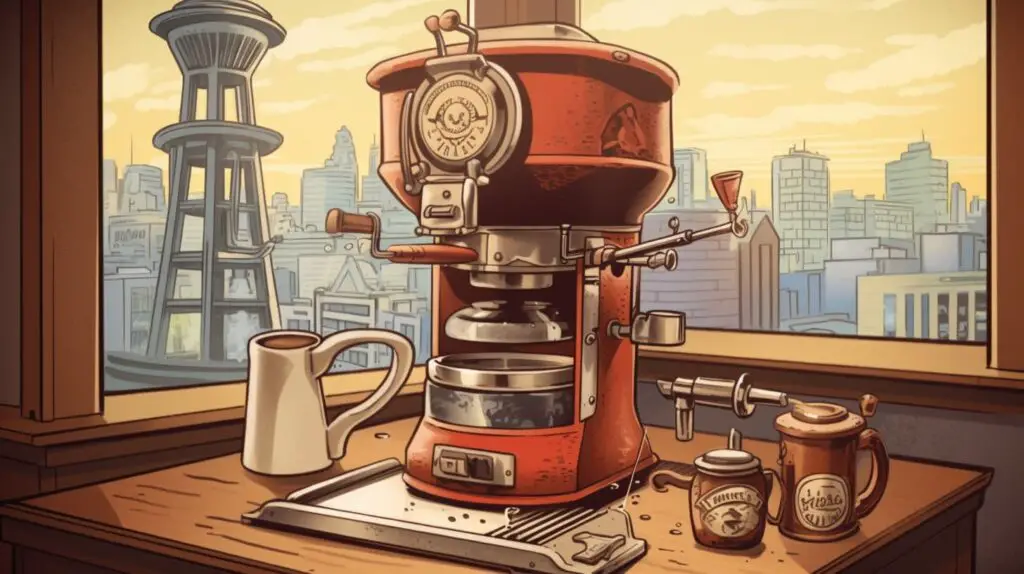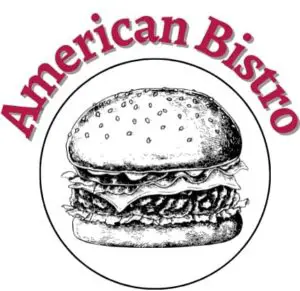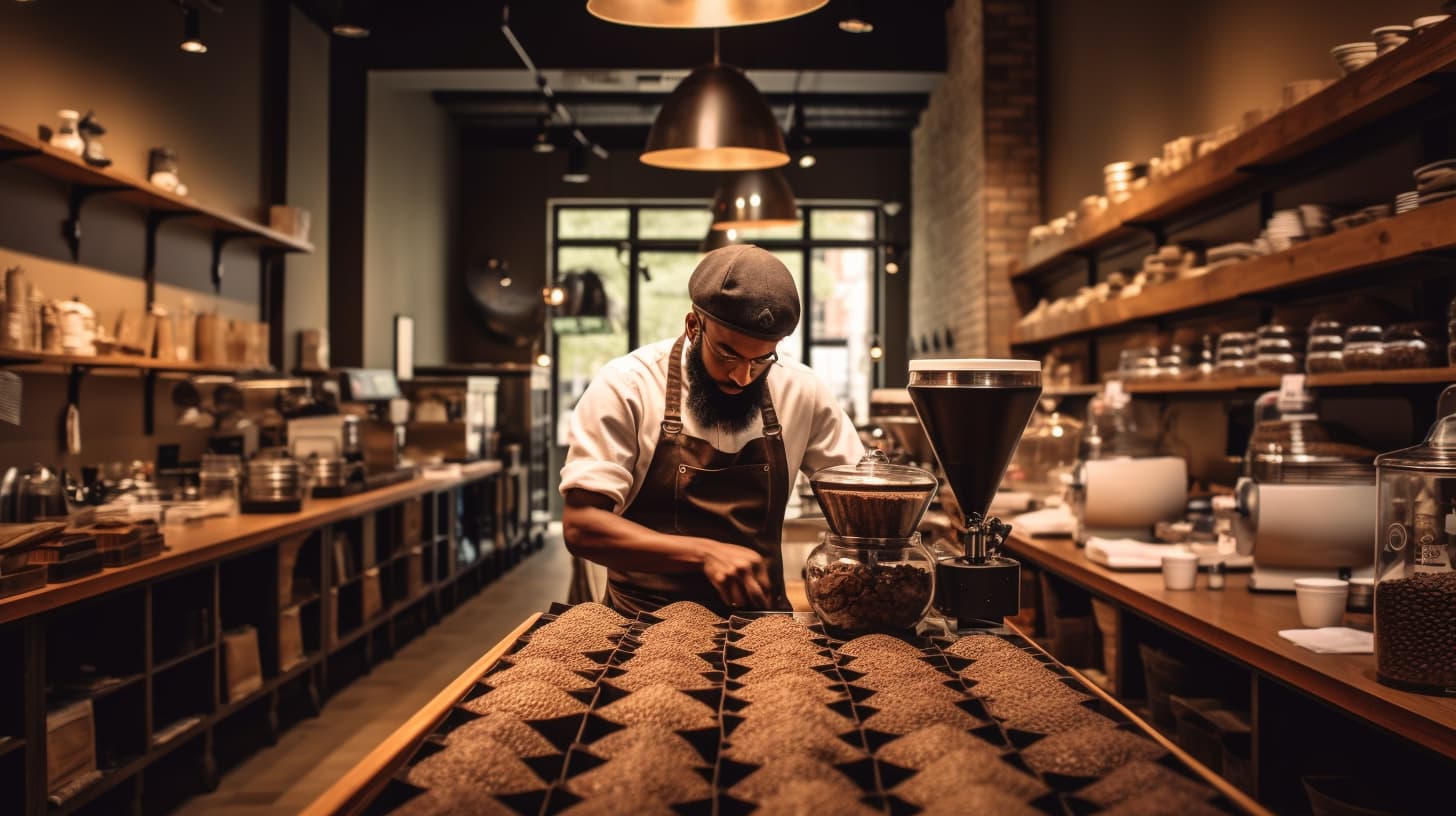Seattle is known for many things, but perhaps its most famous export is coffee. The city’s love affair with the beverage dates back to the early 20th century when pioneering roasters set up shop in the area. Since then, Seattle has become synonymous with coffee culture and boasts some of the best roasteries and coffee shops in the world.
When it comes to finding the best coffee beans in Seattle, there are numerous factors to consider. From roast type to origin, each bean offers a unique flavor profile that can make or break a cup of coffee.
In this article, we will explore some of Seattle’s top coffee roasters and highlight their standout beans so you can enjoy a perfect cup of joe every time. Whether you prefer light roast or dark, single-origin or blended, our guide will help you navigate Seattle’s bustling coffee scene with confidence.
Key Takeaways
- Seattle is famous for its coffee culture and has some of the best roasteries and coffee shops in the world, from popular chains like Starbucks to smaller boutique shops like Victrola Coffee Roasters and Storyville Coffee Company.
- Different roasting techniques result in varied flavor profiles, with light roast coffee being less bitter and having brighter acidity, medium roast coffee having notes of chocolate, nuts, and caramel, and dark roast coffee having a deeper, richer flavor profile with more bitterness.
- Single-origin coffee beans offer a unique taste experience, reflecting the terroir of their origin, while blended coffee beans combine different types of beans from various regions to create a unique flavor profile.
- To find the best coffee beans in Seattle, consumers should consider their preferred roast level and desired flavor profile before selecting an establishment that caters to it. Seattle’s many reputable local roasters offer an abundance of options to choose from.
The History of Seattle’s Coffee Culture

The history of Seattle’s coffee culture is characterized by a rich and complex narrative of social, economic, and cultural forces that have shaped the city’s identity as a global coffee capital.
The roots of Seattle’s coffee scene can be traced back to the early 1970s when Starbucks opened its first store in Pike Place Market. From then on, Starbucks’ impact on Seattle’s coffee culture has been significant and far-reaching.
By introducing the concept of specialty coffee shops that offered high-quality beans from around the world, Starbucks revolutionized the way Americans thought about coffee.
Starbucks’ influence on global coffee culture cannot be overstated. In many ways, they are responsible for creating a new generation of consumers who demand more than just a cup of joe – they want an experience.
This shift towards specialty coffee has had a profound effect on the industry as a whole, leading to an explosion in small-batch roasters and artisanal cafes around the world.
However, Seattle’s coffee culture extends beyond just Starbucks. The city is also home to many independent roasters who focus on sourcing sustainable beans from small farms around the world.
These roasters have helped to establish Seattle as a hub for innovation and experimentation in the industry.
Seattle’s coffee culture is deeply intertwined with its identity as a progressive and innovative city. From Starbucks’ impact on global coffee culture to local roasters’ commitment to sustainability and quality, there are countless factors that have contributed to this vibrant scene.
With this foundation established, it is no surprise that Seattle continues to produce some of the best light roast coffee beans in the world today.
Light Roast Coffee Beans

Lightly roasted coffee beans in the Seattle area have a golden-brown color and a subtle flavor profile that highlights the bean’s unique characteristics. Light roast brewing techniques involve roasting the beans for a shorter period of time at lower temperatures, resulting in a lighter color and less bitter taste compared to darker roasts. This type of roast is ideal for those who prefer a more delicate flavor and aroma.
When it comes to flavor profiles of light roasts, they tend to have brighter acidity with notes of fruit or floral undertones. Some popular light roast coffee varieties in Seattle include Ethiopian Yirgacheffe and Kenyan AA, both known for their bright citrusy flavors. Other notable options include Colombian Supremo and Costa Rican Tarrazu.
To fully enjoy the nuances of light roast coffee, it is recommended to use brewing methods such as pour-over or drip coffee makers. These methods allow for the full expression of the bean’s unique characteristics while maintaining its subtle flavors. Additionally, using high-quality water can enhance the overall taste experience.
As we move on to discussing medium roast coffee beans in Seattle, it is important to note that each type of roast offers its own distinct qualities and preferences. While some may prefer bold and robust flavors found in darker roasts, others may find themselves drawn towards lightly roasted coffees with their nuanced subtleties.
Medium Roast Coffee Beans
Medium roast coffee beans are subjected to higher temperatures and longer roasting times than their lightly roasted counterparts, resulting in a darker color and fuller flavor profile. These coffee beans typically have a more balanced flavor profile compared to light roast coffee beans. The longer roasting time caramelizes the sugars in the coffee bean, creating a slightly sweeter taste with a hint of bitterness.
Medium roast coffee beans are versatile and can be used for various brewing methods such as drip, pour-over, or French press. The flavor profile of medium roast coffee is often described as having notes of chocolate, nuts, and caramel. As these beans are roasted longer than light-roasted ones but not as long as dark-roasted ones, they retain some of the original characteristics of the bean while also developing new flavors.
The acidity level is generally lower in medium roast coffees than light roasts but still present enough to provide a layer of complexity to the taste. Brewing methods play an essential role in bringing out the best qualities of medium roast coffee beans. For example, using a French press method allows you to extract more oils from the bean into your cup for a richer mouthfeel. In contrast, using pour-over or drip brewing methods will highlight its bright acidity and delicate flavors.
Medium roast coffee beans offer an excellent balance between sweetness and bitterness with subtle hints of nutty or chocolatey notes that complement various brewing methods. However, if you prefer stronger flavors with boldness in every sip, then dark-roast coffee might be what you’re looking for next!
Dark Roast Coffee Beans
Dark roast coffee beans undergo a longer roasting process than their lighter counterparts, resulting in a deeper, richer flavor profile akin to the complexities of a fine wine. The extended roasting time causes the beans to lose some of their acidity and develop more bitterness. This makes dark roast coffee an excellent choice for those who prefer bolder, stronger flavors. However, these characteristics can be too overpowering for individuals who prefer milder brews.
To fully appreciate the flavor profile of dark roast coffee, it is essential to use proper brewing techniques. These include using water at the ideal temperature range of 195-205°F and allowing the grounds to steep for around four minutes before pouring. It is also crucial not to over-extract the beans as this can lead to an excessively bitter taste that masks the unique qualities of the coffee.
The table below showcases some popular varieties of dark roast coffee beans available in Seattle and their corresponding flavor notes:
| Coffee Bean | Flavor Notes |
|---|---|
| Caffe Vita Queen Anne Blend | Dark chocolate, molasses, nutty |
| Ladro Roasting Calabria Blend | Smoky, caramelized sugar, bold finish |
| Victrola Coffee Roasters Streamline Espresso | Rich cocoa powder, subtle fruitiness |
| Fonte Coffee Roaster Ethiopia Yirgacheffe Natural | Blueberry jam sweetness with cocoa undertones |
Single-origin coffee beans offer a unique set of characteristics that differentiate them from blends such as those mentioned above.
Single-Origin Coffee Beans
Single-origin coffee beans offer a unique taste experience, as they are sourced from a specific region and often exhibit distinctive flavor profiles that reflect the terroir of their origin. Processing single origin coffee beans involves careful attention to detail to ensure that the unique characteristics of each bean are preserved.
Farmers typically handpick ripe cherries before pulping them to remove the outer layer. The beans are then fermented in water for several hours or days depending on the desired flavor profile. Once fermentation is complete, the beans are washed and dried, either in the sun or using mechanical dryers.
Roasting single origin coffee beans requires skill and precision to bring out their inherent flavors while avoiding any potential defects that may have occurred during processing. Roasters must carefully monitor time, temperature, and airflow during the roasting process to achieve optimal results. Lighter roasts tend to highlight the subtle nuances of single-origin coffees, while darker roasts can mask some of these flavors with smokiness and bitterness.
When brewed correctly, single-origin coffee beans can provide a truly exceptional cup of coffee with a complex array of aromas and flavors. Some popular regions for sourcing high-quality single-origin coffee beans include Ethiopia, Colombia, Brazil, Costa Rica, and Guatemala.
While single-origin coffees offer an unparalleled taste experience when enjoyed on their own, they also serve as an excellent foundation for creating blended coffee beverages. In our next section about blended coffee beans we will explore how different origins can be combined to create unique flavor profiles that cater to varying palates.
Blended Coffee Beans
In the previous subtopic, we discussed single-origin coffee beans. These beans are sourced from a specific region or farm, and they offer unique flavor profiles based on their origin.
However, there is another type of coffee bean that can be just as delicious: blended coffee beans. Blended coffee beans are made by combining different types of beans from various regions to create a unique flavor profile. This allows for more consistency in taste and quality since the roaster has control over the blend. Additionally, blending can help balance out any undesirable flavors in certain beans.
One popular type of blended coffee is flavored blends. These blends incorporate natural flavors such as vanilla, chocolate, or cinnamon to add an extra layer of complexity to the coffee’s taste profile. Flavored blends can be a great way to introduce someone new to specialty coffees as they offer a familiar taste with a twist.
Roasting techniques also play an important role in creating blended coffee beans. Roasting times and temperatures must be carefully controlled to ensure that each bean contributes its unique flavor without overpowering the others. Roasters use their expertise and knowledge of different roasting methods to create delicious blends that highlight each bean’s best qualities.
Moving forward, if you’re looking for where to buy the best coffee beans in Seattle, it’s essential first to consider your preferences regarding single-origin versus blended options. It’s crucial not only to look at where you can find excellent quality but also what kind of varieties you enjoy most!
Where to Buy the Best Coffee Beans in Seattle
Interestingly, when it comes to purchasing high-quality coffee in Seattle, there are a plethora of options available for the discerning consumer. The Emerald City is home to numerous local roasters, ranging from popular chains like Starbucks and Tully’s Coffee to smaller boutique shops like Victrola Coffee Roasters and Storyville Coffee Company. Each of these establishments has its unique style and approach to roasting coffee beans, resulting in varied flavor profiles that cater to different tastes.
When looking for the best coffee beans in Seattle, one should consider the roasting process used by each establishment. There are two primary methods of roasting: light and dark roast. Light roasted beans tend to have a more delicate flavor profile with higher acidity levels, while dark roasted beans have a bold taste with low acidity levels due to prolonged exposure to heat. Some establishments also offer medium roast options that balance both flavor components.
Another crucial factor when considering where to buy the best coffee beans in Seattle is the flavor profile offered by each establishment. Different regions produce distinct flavors due to environmental conditions such as altitude and soil composition. For example, Ethiopian coffee tends to have fruity and floral notes, while Colombian coffee often has chocolatey undertones. It’s essential first to determine your preferred flavor profile before selecting an establishment that caters explicitly towards it.
Finding the best place to purchase high-quality coffee beans in Seattle can be overwhelming due to the abundance of options available. When deciding on an establishment, one should consider their preferred roast level and desired flavor profile carefully. By taking these factors into account, consumers can find their ideal cup of joe from one of Seattle’s many reputable local roasters.
Frequently Asked Questions
How does the altitude affect the taste of coffee beans grown in Seattle?
When it comes to coffee beans, altitude impact and climate influence are key factors that affect the taste and quality of the final product.
Higher altitudes typically result in slower maturation of the coffee cherries, which allows for more complex flavors to develop. This is because cooler temperatures at higher altitudes cause the coffee plants to grow more slowly, leading to a denser bean with more concentrated flavor compounds.
Additionally, the unique climate conditions of Seattle can also have an effect on coffee bean flavor. With its mild temperatures and consistent rainfall, Seattle provides ideal growing conditions for certain varietals of Arabica coffee beans.
Overall, while altitude alone is not a guarantee of high-quality coffee beans, understanding how it impacts flavor profiles can help coffee growers and roasters produce exceptional products that stand out from the competition.
Can coffee beans from Seattle be used for espresso?
Seattle coffee beans are known for their rich, full-bodied flavor and complex aroma. Using Seattle coffee beans for drip coffee is a popular choice among coffee enthusiasts as it allows the flavors to develop slowly over time.
However, when it comes to using these beans for espresso, there are both pros and cons to consider. On the positive side, Seattle coffee beans have a high acidity level which makes them ideal for espresso blends since they can cut through the milk and create a balanced taste. Additionally, their unique flavor profile can add depth and complexity to an espresso shot.
On the other hand, Seattle coffee beans can also be too acidic or bitter for some palates which may result in an unpleasant aftertaste. Ultimately, whether or not one should use Seattle coffee beans for espresso depends on personal preference and experimentation.
What is the difference between coffee beans grown in Seattle and those grown in other regions of the world?
Coffee beans grown in Seattle are not fundamentally different from those grown in other regions of the world, but there are variations in terms of climate impact and soil composition.
Climate plays a significant role in determining coffee flavor profiles, and Seattle’s maritime climate can create distinct flavors compared to beans grown in drier or more tropical climates.
Moreover, soil composition influences how well coffee plants absorb nutrients, which affects the taste and quality of resulting beans. However, it is important to note that these are just two factors among many that contribute to a bean’s overall flavor profile.
Ultimately, the best way to determine which coffee beans are superior is through a comparative tasting process rather than relying solely on geographical origin.
Are there any sustainable coffee bean farms in Seattle?
Can coffee beans be grown sustainably in Seattle?
Sustainable farming practices are becoming increasingly important in the coffee industry, as consumers become more aware of the environmental impact of their purchases. While Seattle is known for its thriving coffee culture, it may not be the best location for sustainable coffee bean farming. Due to its climate and topography, Seattle does not have a long growing season or ideal soil conditions for coffee production.
However, there are some farms in nearby regions that incorporate sustainable practices into their cultivation methods. These include reducing chemical inputs, promoting biodiversity on their land, and conserving water resources. By supporting these farms, consumers can enjoy high-quality coffee while also minimizing their environmental impact.
How do coffee shops in Seattle choose which beans to use for their blends?
Coffee shops in Seattle choose which beans to use for their blends based on a variety of factors, including coffee bean sourcing and roasting techniques.
The sourcing of coffee beans is an important consideration, with many shops prioritizing sustainable and ethically sourced options.
Roasting techniques also play a significant role, as different roasts can produce varying flavors and aromas.
Coffee shop owners often work closely with suppliers to select the best possible beans for their customers, taking into account factors such as flavor profile, origin, and quality.
Additionally, some shops may experiment with blending different types of beans together in order to create unique and distinctive flavors that set them apart from competitors.
Ultimately, the choice of which coffee beans to use is a critical decision that impacts both the taste of the final product as well as the overall reputation of the coffee shop itself.
Conclusion
In conclusion, Seattle’s coffee culture is deeply rooted in its history and has evolved to become a distinctive feature of the city. The numerous coffee roasters and cafes offer a wide range of coffee beans that cater to different preferences. From light roast to dark roast, single-origin to blended, there is something for everyone.
However, while some may argue that Seattle’s coffee scene has lost its edge with the rise of specialty coffee shops in other cities, it remains undeniable that Seattle still produces some of the best coffee beans in the world. Whether you’re a seasoned coffee connoisseur or just starting your journey into the world of specialty coffee, Seattle’s diverse selection of high-quality beans will not disappoint.
So next time you find yourself in this vibrant city, be sure to stop by one of its many renowned roasters and experience firsthand what makes Seattle such an iconic destination for caffeine lovers.

